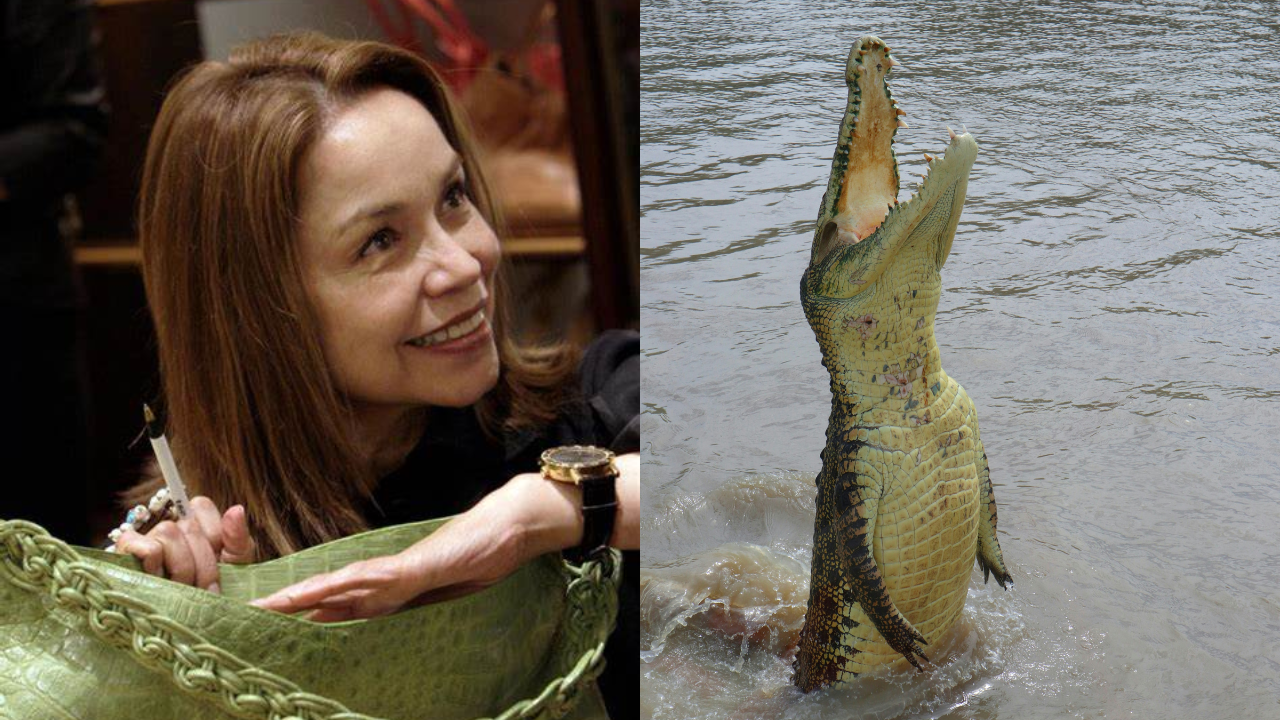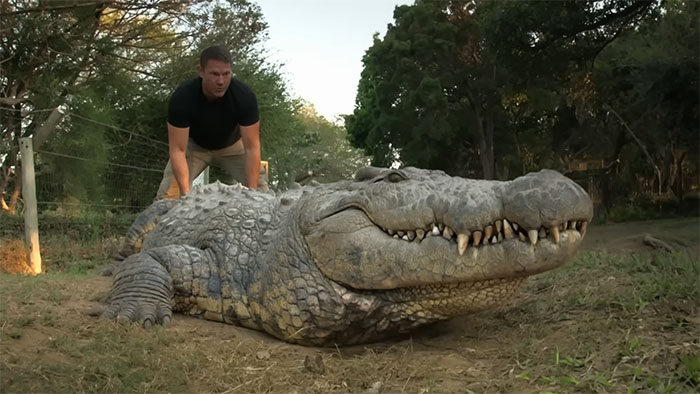A 13.7-foot-long crocodile was captured by authorities after it came mere inches from attacking a houseboat-dweller.
The croc launched itself onto the houseboat in the Cardwell marina in Australia’s Northern Queensland, with owner Dean Grieve narrowly avoiding its maw.
After reporting the incident to Queensland’s Department of Environment, Science and Innovation, the crocodile was captured by wildlife officers on May 13 using a baited trap.
The animal is likely a saltwater crocodile, which are the largest crocodile species, and can grow up to 20 feet long. They are found across much of Southeast Asia and northern Australia, and are considered the most deadly in the world, with about 1,000 people being killed every year worldwide. In Australia alone, there are an estimated 200,000 of these crocodiles living in the waterways, with around one person being attacked annually and one death every couple of years.
“It is important that all crocodile sightings are reported to us, as it gives us an understanding of the location and behaviour of the animals,” Department of Environment, Science and Innovation Wildlife Officer Ella Meeve said in a statement.
“Wildlife officers investigate every crocodile sighting report we receive, and information from the public helps keep people safe. Under the Queensland Crocodile Management Plan, all crocodiles displaying dangerous behaviour are automatically targeted for removal.”
The croc is also thought to have attacked and taken Grieve’s pet dog several weeks prior to the houseboat incident.
Only a few days earlier, a 10-foot croc was trapped in the same marina, on May 8.
The crocodiles are thought to have entered the marina and hung around boats due to being deliberately fed, or being attracted to discarded fishing bait.
“We observed no turtles in the marina and relatively few fish, so some other attractant must have drawn the crocodiles into the marina,” Lindsay Delzoppo, director of Northern Wildlife Operations for the Queensland’s Department of Environment, Science and Innovation, said in a statement after the May 8 capture. “Today, our staff observed baited crab pots on pontoons in the marina, which may have been what attracted the crocodiles—they have a highly developed sense of smell, allowing them to detect prey or animal carcasses, on the land and in the water, from far away.
“The crocodiles are hanging around the marina for one reason, and that reason is food, so we’re asking people in Croc Country to properly dispose of unwanted bait and fish frames at home or in bins provided by councils at boat ramps. Crocodiles will quickly get accustomed to free food and will start approaching people and may start behaving aggressively, as the target animal did in the marina.”
The two crocs will be temporarily housed with the Department of Environment, Science and Innovation, and due to their size, will be treated as “icon” crocodiles.
“This means the decision on where the crocodile will be placed and housed must be made in consultation with the relevant Traditional Owners,” Meeve said. “It also means that the animal may only be placed with a registered crocodile farm or zoo which agrees to use it for educational purposes about crocodile conservation and their ecology.”
The Department of Environment, Science and Innovation advises that crocodiles can be present in all waterways, even in the absence of warning signs. Since crocodiles can also venture into the ocean, it is important to be extra vigilant near water, especially at night.
They also advise that using smaller vessels like canoes and kayaks increases the risk of encounters, so they are best avoided. When fishing, maintain a good distance from the water’s edge and avoid wading in to retrieve lures. Make sure to camp well away from the water and never leave food, fish scraps, or bait near the water, campsites or boat ramps to prevent attracting crocodiles.
This article by Jess Thomson was first published by Newsweek on 14 May 2024. Lead Image: Stock image of a saltwater crocodile (left) and a Department of Environment, Science and Innovation image of the 14-foot crocodile being captured. Crocs can be attracted to marinas due to discarded fishing gear or being… ISTOCK / GETTY IMAGES PLUS / QUEENSLAND DEPARTMENT OF ENVIRONMENT, SCIENCE AND INNOVATION.
What you can do
Choose a one-time, monthly or annual donation to help save wildlife .







Leave a Reply